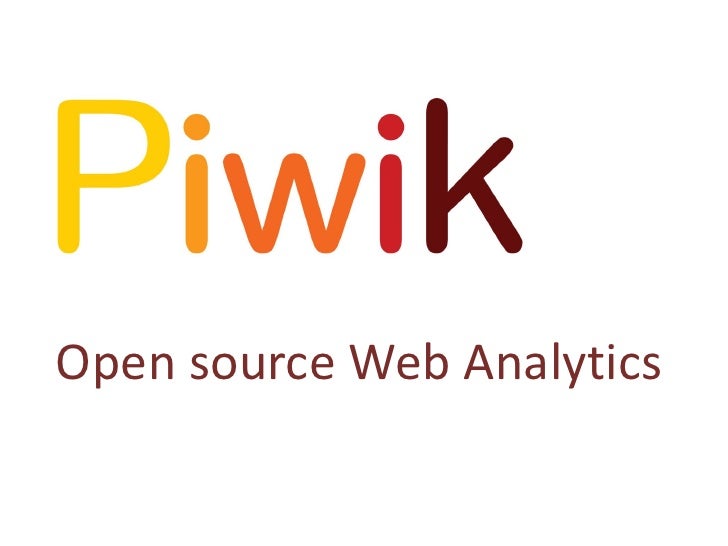Frugal Innovation: A Bibliometric Study of the Conceptual Foundations and Future Research Directions
DOI:
https://doi.org/10.24843/MATRIK:JMBK.2025.v19.i01.p02Keywords:
frugal innovation; sustainability; organizational capabilitiesAbstract
Frugal innovation is gaining traction in resource-limited settings, emphasizing sustainability. This paper uses bibliometric analysis to explore trends and gaps in frugal innovation research. Further publications were identified from the Scopus database using the Publish or Perish tool for the period 2014-2024. Data is processed using RStudio and VOSviewer to reveal key themes, influential scholars, research institutions, and network maps. It highlights the growing scholarly interest in frugal innovation and its alignment with sustainability goals, stressing the need for further exploration of its principles and impacts. The study aims to advance understanding and to guide future research. Additionally, integrating sustainability and environmental considerations in product development, alongside frugal innovation, can drive economic and social sustainable development. Organizational capabilities like Big Data are vital for achieving sustainability outcomes, and frugal innovation positively impacts a firm's financial and environmental performance. Strengthening organizational capabilities is key to leveraging frugal innovation for sustainability.
Downloads
References
Alyahya, M., Aliedan, M., Agag, G., & Abdelmoety, Z. (2023). Understanding the Relationship between Big Data Analytics Capabilities and Sustainable Performance: The Role of Strategic Agility and Firm Creativity. Sustainability, 15(9), 7623. https://doi.org/10.3390/su15097623
Andersen, P. H., & Esbjerg, L. (2020). Weaving a strategy for a base‐of‐the‐pyramid market: The case of Grundfos LIFELINK. Business Strategy and the Environment, 29(8), 3687–3701. https://doi.org/10.1002/bse.2604
Aria, M., & Cuccurullo, C. (2017). bibliometrix : An R-tool for comprehensive science mapping analysis. Journal of Informetrics, 11(4), 959–975. https://doi.org/10.1016/j.joi.2017.08.007
Awan, U., Braathen, P., & Hannola, L. (2023). When and how the implementation of green human resource management and data‐driven culture to improve the firm sustainable environmental development? Sustainable Development, 31(4), 2726–2740. https://doi.org/10.1002/sd.2543
De Marchi, V., Pineda-Escobar, M. A., Howell, R., Verheij, M., & Knorringa, P. (2022). Frugal innovation and sustainability outcomes: findings from a systematic literature review. European Journal of Innovation Management, 25(6), 984–1007. https://doi.org/10.1108/EJIM-02-2022-0083
Dima, A., Bugheanu, A.-M., Dinulescu, R., Potcovaru, A.-M., Stefanescu, C. A., & Marin, I. (2022). Exploring the Research Regarding Frugal Innovation and Business Sustainability through Bibliometric Analysis. Sustainability, 14(3), 1326. https://doi.org/10.3390/su14031326
Dost, M., Nikbin, D., & Qureshi, N. A. (2022). Frugal Innovation and Firm Performance. Academy of Management Proceedings, 2022(1). https://doi.org/10.5465/AMBPP.2022.10582abstract
Havemo, E. (2023). Sustainable Trajectories for Business Model Innovation. Journal of Business Models, 11(1), 58–67. https://doi.org/10.54337/jbm.v11i1.7179
Khan, with S. (2023). What frugal innovation is: defining frugal innovation and delineating its forms through cases studies. In The Economics of Frugal Innovation (pp. 8–17). Edward Elgar Publishing. https://doi.org/10.4337/9781035302338.00006
Kurek, J., Brandli, L. L., Leite Frandoloso, M. A., Lange Salvia, A., & Mazutti, J. (2023). Sustainable Business Models Innovation and Design Thinking: A Bibliometric Analysis and Systematic Review of Literature. Sustainability, 15(2), 988. https://doi.org/10.3390/su15020988
Le Bas, C. (2023a). Frugal innovation as environmental innovation: analytical frame and diffusion factors. In The Economics of Frugal Innovation (pp. 52–71). Edward Elgar Publishing. https://doi.org/10.4337/9781035302338.00009
Le Bas, C. (2023c). The Economics of Frugal Innovation. Edward Elgar Publishing. https://doi.org/10.4337/9781035302338
Lee, V., Dwivedi, Y. K., Tan, G. W., Ooi, K., & Wong, L. (2023). How does information technology capabilities affect business sustainability? The roles of ambidextrous innovation and data‐driven culture. R&D Management. https://doi.org/10.1111/radm.12596
Liang, B., Gu, Q., & Hu, D. (2022). Sustainable Human Resource Management and Organizational Outcomes: A Dynamic Capability Perspective. Academy of Management Proceedings, 2022(1). https://doi.org/10.5465/AMBPP.2022.15911abstract
Lim, W. M. (2022). The Sustainability Pyramid: A Hierarchical Approach to Greater Sustainability and the United Nations Sustainable Development Goals With Implications for Marketing Theory, Practice, and Public Policy. Australasian Marketing Journal, 30(2), 142–150. https://doi.org/10.1177/18393349211069152
Lotan Marcus, K. (2018). The Pyramid Fallacy: Self-Organizing Decentralized Open Systems for Sustainable Collective Action. SAGE Open, 8(2), 215824401877832. https://doi.org/10.1177/2158244018778322
Mbabil Dok-Yen, D., Yaw Addai Duah, D., & Nii Addy, M. (2023). Frugal Innovation a Game Changer to Sustainable Affordable Housing. International Review for Spatial Planning and Sustainable Development, 11(2), 13. https://doi.org/10.14246/irspsd.11.2_199
Moosa, I. (2018). Publish or Perish. Edward Elgar Publishing. https://doi.org/10.4337/9781786434937
Network Visualization. (2023a). In Network Science in Archaeology (pp. 193–236). Cambridge University Press. https://doi.org/10.1017/9781009170659.007
Pineda-Escobar, M. A. (2023, June 20). Capturing and Assessing the Sustainability of Frugal Innovations. New Business Models Conference Proceedings 2023. https://doi.org/10.26481/mup.2302.04
Reichard, J. J., & Martin, A. (2023). SUSTAINABLE DESIGN EVALUATION – INTEGRATION OF SUSTAINABILITY IN PRODUCT DEVELOPMENT PROCESSES. Proceedings of the Design Society, 3, 3275–3284. https://doi.org/10.1017/pds.2023.328
Restu Millaningtyas, Sudarmiatin, S., & Agus Hermawan. (2023). Strategic Sustainable Development With Innovation And Business Model Canvas In SMEs. International Journal Of Humanities Education and Social Sciences (IJHESS), 2(6). https://doi.org/10.55227/ijhess.v2i6.490
Rossetto, D. E., Borini, F. M., Bernardes, R. C., & Frankwick, G. L. (2023). Measuring frugal innovation capabilities: An initial scale proposition. Technovation, 121, 102674. https://doi.org/10.1016/j.technovation.2022.102674
Shestakova, A. Y., Korolev, D. O., Afanasyev, A. A., Nikiforov, I. V., & Yusupova, O. A. (2023). Scopus publications database analysis using its API. In A. Gibadullin & S. Sadullozoda (Eds.), 2nd International Conference on Computer Applications for Management and Sustainable Development of Production and Industry (CMSD-II-2022) (p. 14). SPIE. https://doi.org/10.1117/12.2669237
STÖBER, L. F., SOMMER, D., & EBERSBERGER, B. (2022a). THE IMPACT OF FRUGAL INNOVATION ON SUSTAINABILITY: A SYSTEMATIC LITERATURE REVIEW. International Journal of Innovation Management, 26(08). https://doi.org/10.1142/S1363919622300021
Wang, N., Xie, W., Huang, Y., & Ma, Z. (2023). Big Data capability and sustainability oriented innovation: The mediating role of intellectual capital. Business Strategy and the Environment, 32(8), 5702–5720. https://doi.org/10.1002/bse.3444
Downloads
Published
Issue
Section
License
 This work is licensed under a Creative Commons Attribution-ShareAlike 4.0 International License.
This work is licensed under a Creative Commons Attribution-ShareAlike 4.0 International License.













